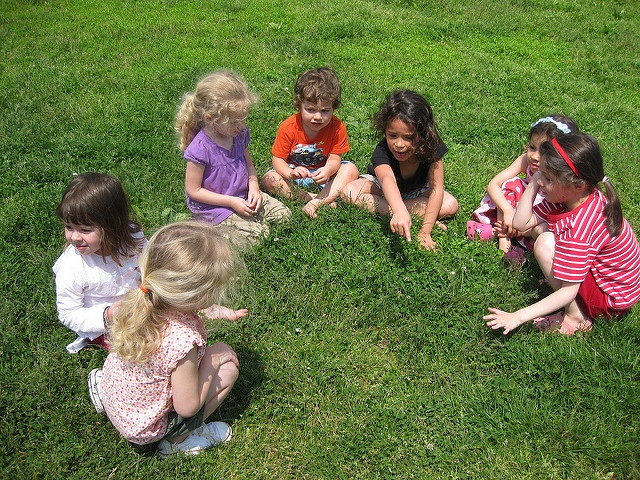
“I’m so sorry, my daughter/son is very headstrong and likes to get what she/he wants…..she always does this (i.e. snatches/pushes/hits)”.
Or how about this one?
“He/she’s such a demanding child, he/she always whines when he/she wants something, especially when he/she knows I’m tired. He/she knows exactly how to push my buttons”.
Sound familiar?
These could be considered common parent statements heard at any number of homes around town, agreed?
What if I told you that, in the case of child mis-behaviour, it’s not always what it seems.
That is, it may not be the child’s behavior alone, but rather a combination of factors. For example, it may be a case also of the parent’s way of looking at the child’s behavior. Let’s explore this as an idea first, and then complete a short exercise to test out the idea.
What are parent attributions?
Parent attributions are referred to as reasons that parents’ look for when trying to explain or understand their child’s behavior. A negative attributional style of parents involves a combination of a few elements. These include attributing:
- blame on the child when the child ‘mis-behaves’
- intent that the child did it on purpose
- that the causes of a child’s behavior are something specifically internal to the child and,
- that the internal element ‘within’ the child is unlikely to change.
Ok, here’s an example to help highlight the main features of a negative attributional style. Imagine your young child is playing with their friend in the next room and you think you hear them fighting. You ask your child what’s going on, but there is no reply. You go into the room to check, and at that moment your child snatches a toy and hits their friend.
What reasons do you look for to explain your child’s behavior?
Do you conclude that:
- My child’s behavior is due to something about my child, for example, because “that’s just the way he or she is” (internal)
- “My child intended to behave this way on purpose” (intent)
- “The reason my child behaved this way is unlikely to change” (stable and unlikely to change)
- “My child deserves to be blamed for their behavior” (blame)
Would you agree that all parents want the very best for their children and want them to be a good enough reflection of your hard work in trying to raise them with love, patience and guidance? Here’s the interesting thing. It may not be the intention of your young child to persistently mis-behave, but rather the intention of the child to have his/her needs met. For example, it may not be the intention of the child to interrupt your efforts to prepare the evening meal by asking for help with a lego creation or ‘can you play?’ requests. Rather this may be reflective of developmentally appropriate behavior and might be better explained as an effort from the child to develop or strengthen a parent-child bond, or schedule some quality time or quiet play as the day comes to an end, or that she/he is still learning how to master independent play.
Being a parent means that often you are trying to juggle many roles and responsibilities with increased stress levels and so it may often be the case that we are not seeing our children’s behavior and real world experiences with mindful, objective eyes…….but rather with negative parental attributions. It may not be helpful for a parent to ‘name, blame and/or shame’ your child’s behavior and view it as a trait that is internal to the child and unlikely to change in the future. This can increase parenting stress, frustration and helplessness about how to be the type of parent that you initially intended to be to raise your children with love, patience and guidance.
Why are parental attributions important?
Negative parent attributions are linked to:
- negative feelings such as parental anger, and negative parent behavior towards their children
- parents’ use of harsh discipline e.g. yelling, excessive snappiness, pushing and/or hitting
4 Steps to help over-come the negative effects of negative parent attributions
- Tune into your reasons that you use to explain your child’s ‘mis-behaviour’: We often are not aware of what our parent attributions are, especially if we have not had children yet ourselves or we do not set aside time in our busy parent roles to tune into what we think are the reasons for our children’s mis-behaviour or behavioral challenges.
- Learn to cultivate mindfulness skills as you go about your parenting roles and responsibilities so you can tune in to the present moment (Click here for Mindfulness Skills). This can help us to tune into our child’s developmental, emotional and physical needs as they are happening, right now, and provide a richer insight into our child’s precious world.
- Educate yourself as best you can, and/or read about child development to understand ‘normal’ stages of child development and behavior. This can provide a benchmark to draw on – particularly if one of the parent attributions you have involves thinking that your child does certain behaviours on purpose (intent) and should be blamed and followed up with aversive consequences i.e. punishment to get them “to learn”.
- Become aware of any negative attributional styles of your own parents: This may help to explain how you may have developed certain parent attributions, particularly related to difficult or challenging behavior that may be contributing (and maintaining) increased parenting stress and/or strained parent-child relationships.
For assistance in getting to understand more clearly what your parental attributional style is about and how this may be impacting on your parent-child bond and behaviour management, please feel free to contact the psychologists at Attuned Psychology on 8361 7008.
Subscribe to our newsletter Attuned Life
Would you be interested in receiving our occasional newsletter, event information and other useful tips via e-mail?

